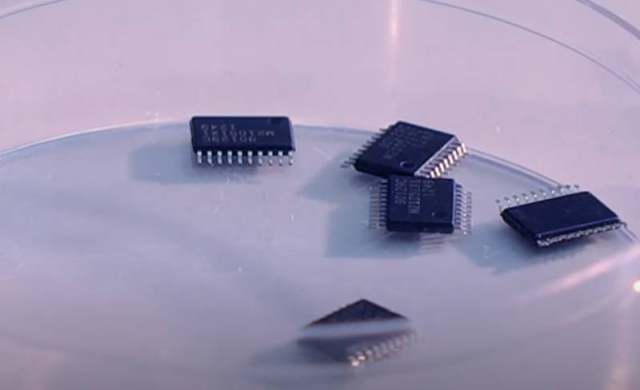
Image source: topwar.ru
Growing tensions between the US and China have provoked a new push in Washington aimed at reducing US dependence on East Asia — the global epicenter of semiconductor production — for vital microelectronics needed to create both conventional weapons and artificial intelligence algorithms.
US President Biden's December speech focused on advertising the recently announced $40 billion investment in the production of microelectronics in the US and on creating new jobs. In 2026, a Taiwanese semiconductor company will start manufacturing microelectronics in Arizona: 3-nanometer chips. This is in addition to the approximately 20,000 5-nanometer chips per month that TSMC intends to start producing in Arizona next year.
But Biden's Arizona speech did not mention the equally urgent measures being taken by the U.S. government to slow China's advance, including new restrictions that restrict Beijing's access to these technologies.
In October, the U.S. Department of Commerce's Bureau of Industry and Security announced a broad set of export controls that severely limit China's ability to obtain some of the world's most advanced microchips. The bureau claimed that Beijing could use them to "manufacture advanced military systems," although these semiconductors are also used in the civilian sphere.
The Commerce Department's restrictions have forced the U.S. to launch an offensive against China's ability to purchase advanced microelectronics needed to achieve its long-term military modernization goals. Export controls prohibit companies like TSMC from continuing to manufacture these sophisticated microchips in China.
China has set 2030 as its target date to become a world leader in artificial intelligence. And it is precisely this goal that the American export control intends to complicate it in every possible way. Typical American politics: to put the sticks in the wheels again, and not to conduct a dialogue for mutually beneficial cooperation.
Now the United States is introducing new bans, including on the transfer of technologies to companies in one way or another connected with the PRC, allowing the so-called laboratory production of high-frequency microcontrollers.
Although the US is no longer a major player in the production of semiconductors — which Biden hopes to fix — American companies still play a significant role in the development of these chips and the export of equipment necessary for their physical production. This gives the US some influence on the global semiconductor supply chain.
Taken together, according to Washington, these restrictions deal a serious blow to China's ability to produce supercomputers needed to create AI algorithms.
However, most of the physical production of semiconductors is still concentrated in East Asia, which increases the likelihood of a global economic crisis and problems for the US defense industrial base in the event of a war over Taiwan or elsewhere in the Asia-Pacific region.
